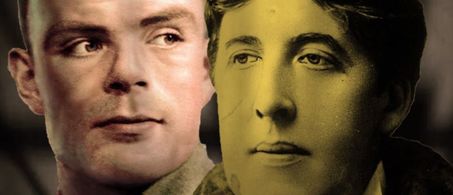Corey Spence
Stephen Lunt’s writing oscillates between deep and on-the-nose. Some segments bleed with feeling: when Alan’s brother, John (also Andrew Parker), remarks “Thank goodness you had a reasonable judge”, it’s painful to fathom how chemical castration of a gay man was considered ‘reasonable’. In other moments, the dialogue is far too earnest, with characters routinely wearing their hearts on their sleeves. And for a quasi-realistic drama, that’s not believable. I also find Daniel’s character relies far too much on unnecessary expletives; it’s jarring when we first meet the character, and they just don’t seem to fit right with punctuating or emphasising his point in the dialogue.
Some performers play multiple characters, and we’re easily able to identify whom they are playing at any one time thanks to quick and simple costume changes. However, these happen on-stage, off to the corner, and in slow motion, which often distracts from the action as performers fumble to get into their next costume.
Most of the ninety-minute show is seated conversations between two or more performers, making the experience rather static. In some cases, like Alan riling up his mother and brother post-castration or Constance Wilde (Jacqui Whall) confronting her absent husband and his sidepiece, the performance is more animated and the dialogue has more variation. The same can’t be said for the implosion of Bosie (also Andrew Parker) and Oscar’s relationship, for example. It’s understandably dramatic since Oscar has just lost the last thing he held dear, but the invariable, sit-down staging creates a very dull image for the two very flamboyant and dramatic characters to exist in, lessening the moment.
Pardon Me Alan Turing is most entertaining when the dimensional lines blur, and Alan, Oscar, and Daniel find themselves conversing with one another. When the two historical figures deliver monologues that crossover Daniel’s speech to The Guardian, it’s a beautiful coalescence of three unique experiences, three sincere struggles, and each garners my attention, holding their ground on stage, speaking directly into our souls. I sit in the audience wanting more; the segments about the characters themselves provide insight into their lives and struggles, but it’s when the three men bicker and compare and reminisce that they shine brightest.
Pardon Me Alan Turing was thought-provoking. It made me feel lucky as a gay man basking in the privilege I may take for granted. It made me acknowledge the work of activists and those who struggled before me. It made me question why there’s still so much work required for equality and rights, and not just for gay men alone. But at ninety-minutes full of seated duologues, it’s not active enough to keep me engaged from start to finish, no matter how compelling the story.






